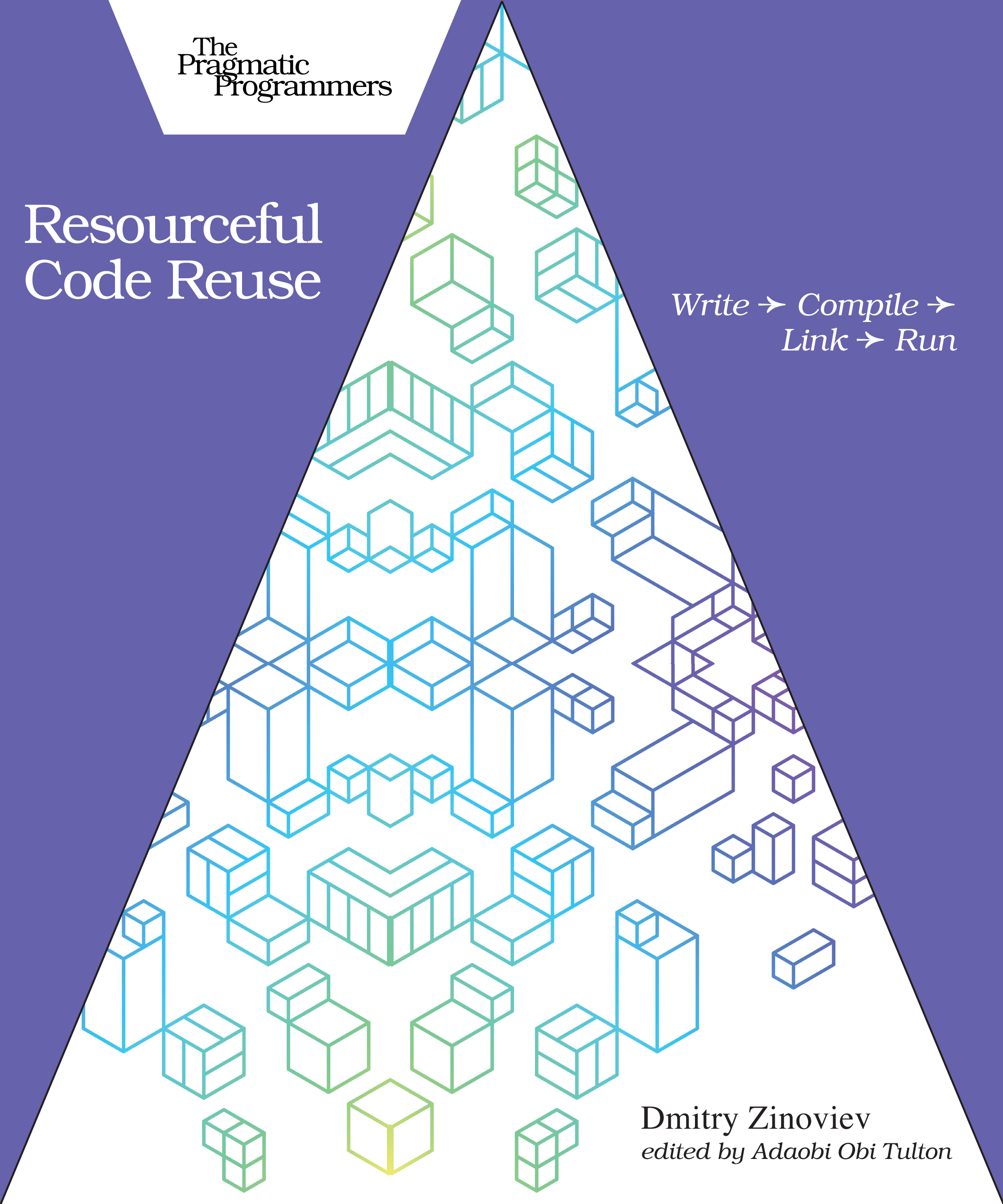Resourceful Code Reuse
Write → Compile → Link → Run
by: Dmitry Zinoviev
| Published | 2021-04-30 |
|---|---|
| Internal code | dzreuse |
| Print status | In Print |
| Pages | 64 |
| User level | Intermediate |
| Keywords | software architecture, Python, C, object oriented, Q/A, productivity, |
| Related titles | |
| ISBN | 9781680508208 |
| Other ISBN |
Channel epub: 9781680508437 Channel PDF: 9781680508444 Kindle: 9781680508413 Safari: 9781680508420 Kindle: 9781680508413 |
| BISACs | COM051360 COMPUTERS / Programming Languages / PythonCOM051060 COMPUTERS / Programming Languages / CCOM051060 COMPUTERS / Programming Languages / C |
Highlight
Reusing well-written, well-debugged, and well-tested code improves productivity, code quality, and software configurability and relieves pressure on software developers. When you organize your code into self-contained modular units, you can use them as building blocks for your future projects and share them with other programmers, if needed. Understand the benefits and downsides of seven code reuse models so you can confidently reuse code at any development stage. Create static and dynamic libraries in C and Python, two of the most popular modern programming languages. Adapt your code for the real world: deploy shared functions remotely and build software that accesses them using remote procedure calls.
Description
Avoid the drawbacks and harness the benefits associated with seven code reuse models. Create static and dynamic libraries in C and Python, deploy shared functions remotely, and build software that makes intelligent use of remote procedure calls. In no time at all, you’ll develop the confidence to reuse code at any stage of real-world development.
This one-stop solution covers the complete build cycle: editing, compiling, linking, and running a ready program. Apply Linux/macOS power software development tools, such as ld, ldd, ranlib, and nm, to construct and explore state-of-the-art function libraries in C that could be linked with application-specific code either permanently or for the duration of execution. Learn why Python has modules for reuse and how they differ from C object files and libraries. Understand the risks and other negative implications of sharing and reuse. As a bonus, distill the dependencies between your project’s components and automate and optimize your build process with the “make” utility.
Whether you are an amateur coder or an experienced developer, become a more productive and resourceful programmer by reusing previously written code.
Contents and Extracts
- Preface
- About the Reader
- About the Book
- About the Software
- Introduction: Why Reuse Code?
- C vs. Python
- Running Example
- Reuse Code at Compile Time (C and Python)
- Arranging Source and Header Files
- Modularizing Code (the Python Way)
- Reuse Code at Link Time (C Only)
- Compiling Object Files
- Building Static Libraries
- Building Dynamic Libraries
- Reuse Code at Runtime (C and Python)
- Harnessing Dynamic Loading
- Getting a Taste of Remote Procedure Calls
